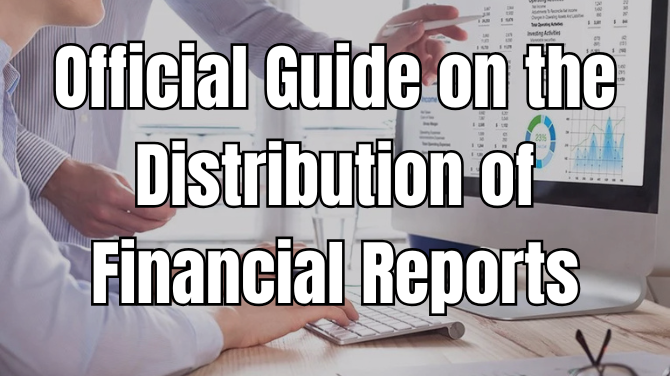Guidance For First-time Tax Filers

Strong 8k brings an ultra-HD IPTV experience to your living room and your pocket.
The IRS sets income limits for mandatory filing. Check their website to see if your income falls below the threshold for your age and filing status (single | married etc.).
Dependents with high job or freelance income may benefit from filing for a tax refund.
2. FORMS AND DOCUMENTS
W-2 Forms: Regular job? You'll get a W-2 from your employer with wage and tax withholding details.
1099 Forms: Earned income freelancing, side hustling, or investing? The payer will send you a 1099 form (specific type depends on income source).
Other Potential Documents: Depending on your situation, you might need additional items like tuition statements (education credits), receipts (charitable donations), or proof of medical expenses.
Scan for Security and Convenience
Scanning your W-2s, 1099s, and receipts creates a safe and organized backup. This helps if paperwork gets lost and allows easy access when needed. Plus, some tax filing software lets you import information directly from these digital files, reducing manual data entry and errors.
Dealing with Low-Quality Scans
After scanning, you might encounter poorly readable documents.
Poor Scan Quality: Suboptimal scanner settings can create blurry or pixelated digital files.
Handwritten Content: Standard scans capture handwritten information as images, making it difficult to search or edit the text.
Solution: Free OCR Software (Optional)
If your scans are text-heavy (like W-2s) use the OCR tool. This converts them into editable text files, allowing easy keyword searches and copy-pasting information, saving you time and effort.
Finding Free Online Tax Filing Platforms
The best resource for finding free tax filing software is the IRS website's Free File program at https://www.irs.gov/filing/free-file-do-your-federal-taxes-for-free. This program allows you to explore various trusted partners based on your Adjusted Gross Income (AGI) and other factors.
Free PDF Organizer Tool
Benefit: Organize your tax documents electronically, categorize them for easy retrieval, and avoid the hassle of paper clutter.
Tool: Free PDF Form Filler Tool
Benefit: Simplify itemized deductions by electronically inputting them directly into the relevant sections of your tax forms. This reduces errors and ensures accurate calculations.
Tool: Free PDF Expense Tracker
Track your income and expenses throughout the year for better budgeting. This app might also offer features to store receipts electronically, potentially saving time when sorting out tax-deductible business expenses.
benefits of having digital copies of your tax documents
Scanning your W-2s, 1099s, and receipts creates a secure and organized backup. This can be helpful in case of lost paperwork and allows you to easily access them when needed.
3. Choosing Your Filing Method
Paper vs. Electronic Tax Filing
Tax filing can be a battle, but choosing your weapon is key. Do you go old-school with paper forms, or embrace the digital age with electronic filing (e-filing)?
Paper Filing
Pros: Comfortable for those who prefer physical copies. No internet is needed.
Cons: Time-consuming: Filling, copying, and mailing forms is tedious.
Accuracy: Mistakes happen, leading to delays and potential penalties.
Speed: Paper returns take longer for the IRS to process, delaying your refund.
E-filing
Pros: Blazing fast processing means quicker refunds!
Accuracy: Software catches errors before submission, minimizing mistakes.
Convenience: File from anywhere with an internet connection and receive instant confirmation.
Eco-Friendly: Saves paper and reduces mailing costs.
Cons: Requires internet access and a computer.
Cost: While free options exist, some platforms may charge fees for complex tax situations.
Cost: While free options exist, some platforms may charge fees for complex tax situations.
4. tax form
Form 1040: The king of tax forms, used by most taxpayers. It's where you report income, deductions, and credits to see if you owe taxes or get a refund.
State Tax Returns: Many states require a separate return besides your federal one. They're similar to the 1040 but follow your state's tax laws.
5. Standard Deduction vs. Itemized Deductions
They lower your taxable income, reducing your tax bill.
There are two main ways to claim deductions.
Standard Deduction: This is a pre-set amount set by the IRS each year. It's a fixed dollar amount you subtract from your income, regardless of your actual expenses. Easy and convenient, but may not be the most advantageous depending on your situation.
Itemized Deductions: Instead of the standard deduction, you can itemize your deductions. This means listing out specific expenses like mortgage interest, charitable donations, and medical bills. However, this only makes sense if the total of these itemized deductions is greater than the standard deduction.
Choosing Wisely:
Having digital copies of your tax documents (receipts, W-2s, etc.) is key. Easy access allows you to see if itemizing benefits you. Some tax filing software can even import this information directly, saving you time and reducing errors.
6. Tax Credits
Tax credits are like deductions on steroids! While deductions lower your taxable income, credits directly reduce your tax bill dollar-for-dollar. This can lead to a significantly smaller tax bill or a much bigger refund.
Earned Income Tax Credit (EITC): This is a golden ticket for low- and moderate-income earners. It can significantly boost your tax refund.
American Opportunity Tax Credit: This credit helps students enrolled in college or vocational training offset education expenses.
Reporting Income
Tax season hinges on accurate income reporting.
Wages: Your employer provides a W-2 form detailing your annual wages and withheld taxes. Simply report this amount on your return.
Scholarships and Grants: Generally, scholarships and grants used for educational expenses are tax-free. However, exceptions exist. Check the IRS website or consult a tax professional if unsure.
Freelance Work: Income from freelance gigs or side hustles likely comes with a 1099 form from the payer. Report this income and deduct any related business expenses.
Investments: Interest from savings accounts, dividends from stocks, and capital gains from selling investments are all taxable. You'll receive forms like 1099-INT and 1099-DIV reporting this income.
State and Local Taxes
State Tax Returns: Many states have their own income tax, requiring a separate state return alongside your federal one.
Local Taxes: Some localities might have additional taxes, like city or county income taxes.
State Tax Breaks: Many states offer tax breaks for residents, like deductions for charitable donations or student loan payments. Research these to potentially lower your tax bill.
Tax Filing First Time
Important points to notice.
Missing Deadlines: April 15th is typically tax day (extensions are possible), but miss it and face penalties and interest. Mark your calendar!
Deduction Duds: Don't guess on deductions! Double-check calculations and keep documentation to support your claims.
Math Mishaps: Typos and miscalculations can cause problems for you and the IRS. Carefully review your return before hitting submit.
Paper Pusher Peril: Remember the e-filing benefits? Avoid paper filing to get faster refunds and fewer errors.
Filing Finesse Tips
Gather All Documents: Income statements, receipts, and other relevant documents ensure accurate filing.
Embrace E-filing Software: Free platforms guide you through the process, prevent errors, and maximize deductions and credits.
Double Check, Breathe Easy: Take your time reviewing your return before submitting. Catching mistakes now saves stress later.
Post-Filing Pointers
Confirmation: The IRS will usually send you an electronic or paper acknowledgment letting you know they received your return.
Processing Time: E-filed returns are much faster. Expect weeks for a refund electronically or months for paper filings.
Refunds: If you're due money back, the IRS will typically deposit it directly into your bank account or mail you a check.
Audits: The IRS does conduct audits to verify returns. Don't panic! Having all your documents organized from filing will make the process smoother.
Needing Help? No Shame in Getting Support Tax filing can feel overwhelming.
Free Tax Prep: Many non-profit organizations offer free tax preparation assistance to low- and moderate-income filers.
IRS Website: The IRS website is a goldmine of information including tax forms | filing instructions and FAQs.
Tax Professionals: For complex tax situations, consulting a tax professional like a Certified Public Accountant (CPA) can provide valuable guidance and ensure you maximize deductions and credits.
Tax Time FAQs and Glossary
Q: Do I need to file if I barely made any money?
A: The minimum income to file depends on your age and filing status. Check the IRS website for current thresholds.
Q: What if I messed up my return? Can I fix it?
A: Yes! You can file an amended return (Form 1040X) to correct any errors.
Q: How long do I need to keep tax documents?
A: The IRS recommends keeping them for at least three years after filing.
Q: Can't afford to pay by the deadline?
A: The IRS offers options like payment plans and extensions.
Tax Lingo Explained
Deduction: Lowers your tax bill by subtracting an expense from your taxable income.
Tax Credit: Reduces your tax owed dollar-for-dollar.
E-filing: Electronically filing your tax return.
Standard Deduction: A set dollar amount you can deduct without itemizing expenses.
Itemized Deductions: Listing out all your eligible expenses to reduce your taxable income.
Taxable Income: The amount you are taxed on after subtracting deductions.
Refund: Money the IRS returns to you if you overpaid taxes.
Audit: An IRS review to verify the accuracy of your return.
Note: IndiBlogHub features both user-submitted and editorial content. We do not verify third-party contributions. Read our Disclaimer and Privacy Policyfor details.




